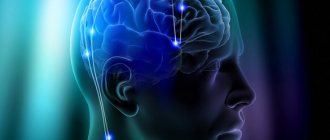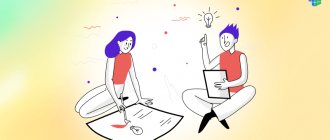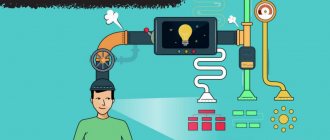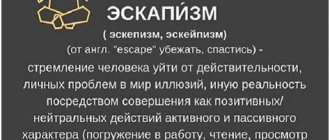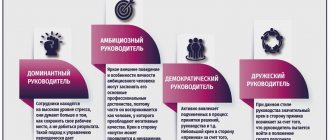How often have you been told lies? How many cases have there been when you never found out that you were lied to? Has it ever happened that because you did not understand the state of your interlocutor, your negotiations (or just communication) were not successful? How much in our lives depends on our ability to analyze people. How to recognize a lie? What are the signs of manipulation? How to avoid being scammed? How to avoid falling under human pressure? In fact, this is a whole science, and it is called “profiling.” With this collection we will help you understand its basics and take the first steps in the ability to analyze a person.
1
Profiling: definition, directions, training
The concepts included in the term “profiling” are often diametrically opposed, so the uninitiated person often does not understand what it means. In general, the term profiling comes from the English word profile (“profile”) and can be translated as “profiling.” In fact, this means that a person identifies signs of behavior, emotional response, speech and appearance in others. In this article we will try to dot all the i's in this matter: we will understand the definition, talk a little about its history, types and areas of application, and also talk about how to learn it. Read more…
2
The Pros of Critical Thinking
Let us immediately note that critical thinking has only positive aspects and no negative ones (unless, of course, you resort to arguments in the style of “The less you think, the easier your life”). The ability to think critically gives a person such advantages as:
- constant training of cognitive abilities, development of logical thinking and observation;
- the ability to quickly navigate a large amount of information, discarding the unnecessary and focusing on the main thing;
- independence, the ability to independently form one’s point of view and defend one’s opinion without resorting to someone else’s authority;
- the ability to debate convincingly , earning the respect of others;
- constant acquisition of new knowledge of high quality.
In fact, a well-developed ability to think critically gives its owner many more advantages. It is hardly possible to find a person who would argue with the statement that it is useful to be able to quickly analyze information, assessing its adequacy and reliability.
HR profiling
Recruiting and retaining both individual candidates and teams is invaluable to any business. Employees who reflect and adhere to the organization's values provide a high level of cohesion, which leads to company prosperity and revenue growth. Everyone wins. Today, most businesses know that their success is tied to the people who work for them, but many don't understand how to retain them, develop them, or what it takes to hire the best people. The answer to these questions is provided by HR profiling - the use of profiling methods to recruit and understand whether candidates or employees are suitable for a particular job. Read more…
4
Development of analytical skills
When hiring employees, employers often list analytical skills as essential. And this is not without reason - today, workers of many professions need to be able to work with large volumes of data, analyze and highlight the main thing. Project management, report writing, technical problem solving, and even conversational skills are just a few of the areas where analytical skills are needed. If you think this is boring and dull, then know that developed creative thinking also requires these skills.
How strong are your analytical problem-solving skills? Not too sure about your answer? With regular practice they can be strengthened and developed. Let's talk about this next.
What are Analytical Skills
Analytical skills are the ability to visualize, formulate, conceptualize, and resolve problem situations by making intelligent decisions based on available information. Here is a short list of skills and abilities that constitute and at the same time contribute to the development of analytical skills.
Break problems down into their component parts
Many people get stuck when trying to solve a big problem. Analytical skills help you break problems down into smaller pieces that are easier to solve. This saves time and energy.
Collect and evaluate information
Also known as information literacy, this skill allows you to separate the wheat from the chaff. In a literal sense, this is the ability to select and operate with relevant and correct information, work with sources, and draw informed conclusions.
Manage information effectively
Today it is important to be able to manage a large amount of information. This skill set includes both direct information processing and strong organizational skills.
Look for alternatives and solutions
Over time, every person realizes that there are many paths leading to success in life and business. With strong analytical skills, you will be equipped with an effective tool for finding solutions and alternatives.
Read difficult books and absorb difficult information
It is necessary to read and understand complex material from time to time. For example, this could be a technical document that explains how to use the application.
In general, analytical skills are used in the following situations:
- To solve complex problems
- Making informed decisions
- Generalizations of statistical data
- Identifying trends
- Process ordering
- Effective project execution
- Problem analysis and diagnosis
- For research or data analysis
If you are not a scientist, detective, or mathematician, what use are analytical skills to you? In your personal life, you can identify trends and patterns of behavior in order to better recognize yourself and the world around you, communicate effectively with people, conduct life experiments, and explain your point of view.
When you learn to think analytically, you will automatically improve your critical and creative thinking skills. You will also be valued by employers for your ability to solve complex problems. We will cover the last point separately.
What questions are asked at an interview?
Here are some typical interview questions to test a candidate's analytical skills.
- What steps do you need to take to study the problem and then make the right decision?
- Tell me about a time in your previous job where you discovered a more efficient method for completing a typical task.
- Can you give me an example of a small problem that you identified and solved before it became a major problem?
- Describe problems you have encountered previously that required analytical skills.
- Think of a problematic situation that requires a quick solution. How did you resolve it?
- Have there been times when your analysis of a situation and the decision you made made it worse and you failed? What would you do differently now?
- What is the most difficult analytical task you have ever completed?
The answers to these questions will partly determine whether you will be hired. Moreover, what will be assessed is not so much your experience as your ability to reason right now: the construction of phrases, logic in narration and the ability to make correct conclusions.
12 Principles of Analytical Thinking
Follow these principles when you encounter a problem and try to find an effective solution:
- Collect information that is related to the topic or problem.
- Focus on facts and evidence, not opinions and speculation.
- Study the information carefully.
- Give a precise definition of the problem.
- Use logic.
- Break complex information into simple chunks.
- Look for patterns and identify trends.
- Determine cause and effect.
- Learn to understand the connections between concepts and their interrelationships.
- Eliminate unnecessary and extraneous information.
- Organize your information.
- Draw informed conclusions.
Some problems do not require following these principles because they are too simple and obvious. Others are complex and take a very long time to resolve. But by following these principles, you significantly increase your chances of ultimate success.
How to develop analytical skills
Play analysis games
There are many games that can help you improve your analytical skills. Some of the most popular:
- Chess
- Puzzles
- Backgammon
- Sudoku
- Various puzzles
There are many online games, exercises and simulators for developing analytical thinking. These are available, for example, in our Cognitive Science program, and are also included in the PRO functionality.
Make lists, mind maps and tables
We all face a lot of problems, most of which are related to each other. How not to get confused in this array of information and how to see intersections and trends? There are lists, mental maps and tables for this. These practical tools will help you manage yourself and become more organized.
You can train your analytical skills by creating lists like these:
- List of your values and life rules
- To-do list
- List of things not to do
- Reading list
- List of films
- List of habits you need to instill in yourself
- List of habits to break
In the same way, you can create tables of your expenses and income or diet. Think about an area of your life where there is a large amount of information and categories. Then create a table or graph to make it easier.
You can learn more about mental maps from the article.
Use the Five Whys Technique
This simple and powerful technique will allow you to focus on what really matters.
Find the root cause of the problem. Ask yourself the question “Why?” whenever you are faced with something unclear or difficult. The reason may be hidden so deeply that it takes a very long time to dig to find it. For example, the reason for poor sales may not be the quality of services or goods, but that the site takes a long time to load or applications take a long time to process.
Use the SWOT technique
Created by Albert Humphrey back in the 1960s, the tool has stood the test of time and remains just as useful. You can use it in two ways - as a simple icebreaker to help a team come together to start developing a strategy, or in a more complex way, as a serious tool for solving a whole range of problems.
Using this technique, you create an entire strategy rather than trying to fight one problem.
Let's see how you can use this analytical tool for self-development.
Strengths
Ask yourself the following questions:
- What are your advantages?
- What do you do better than anyone else?
- What unique and cheap resources can you use?
- What do other people consider your strengths?
By answering them, you will be able to assess your personality in terms of skills.
Weak sides
Answer the following questions:
- What can you improve about yourself?
- What should you avoid?
- What do other people consider your shortcomings?
The third question is especially important. We are so used to knowing everything about ourselves that we ignore the opinions of others. From the outside, some problems are easier to notice.
Possibilities
Answer the following questions:
- What opportunities do you have at the moment?
- Is it possible to turn your shortcomings into advantages?
- What global trends in self-development exist and what can be used?
To see opportunities, you need to examine a lot of information, classify it and draw conclusions. The concept of "trend" means that you carefully study the whole picture and try to find something common in it.
Threats
Answer the following questions:
- What threats do you face?
- Will your skills and knowledge be in demand in 5 years?
- Will technological change hurt your life and career?
- Do you have any debts?
Be realistic and rigorous when conducting your analysis. The more honest the answers are, the more correct conclusions you can draw.
The SWOT tool can also be used when analyzing and creating a strategy for your business.
Learn to program
Knowing how to “talk” to machines is one of the most valuable skills a person can have today. Coding also improves cognitive and analytical skills.
Everything we talked about in this article comes into play when writing code.
Play the game "Argument - Counterargument"
You don't even need a partner for this, although it is advisable. Write down on a piece of paper all your beliefs or opinions that you are confident in. Support all this with arguments. Now find ten counterarguments for each of them. Try to defend the opposing point of view.
Here's what you'll achieve by doing this exercise, according to Scott Fitzgerald: "You'll pass the test of first-rate intelligence when you can hold two opposing ideas in your mind and still retain the ability to think."
Experiment regularly
Become a scientist of sorts who conducts experiments, collecting all kinds of information. Write down your assumptions about how you intend to prove or disprove the theory, and then carry them out.
For example, find out how to behave in a conflict in order to resolve it. Can:
- Respond to reproach with reproach
- Keep calm
- To ask questions
- Tell jokes
- Refrain from criticism
Each such action has its consequences. Write down in detail what this or that tactic led to. Analyze what all this could mean. This will help you find effective ways to communicate with other people.
Look through 100 articles on a specific topic and write down the main ideas
This is a great exercise for getting a big picture of a certain topic and broadening your horizons. As you review articles, look for recurring and unique ideas in structure, semantics, and clarity of language.
Imagine that after completing the work you will have dozens of points of view on one issue. You don't have to agree with them, it's important to know that they exist. This gives a huge advantage in debate and defending your point of view.
Analyze what's happening in a room full of people
Especially if you don't know them. Analyze the relationships between them, intentions, certain words and gestures. Imagine yourself as a detective trying to figure out what's going on in the room. You can play this game in a club, in a waiting room, or anywhere you find yourself in a group of people.
Describe the various processes in your life
Want to keep your memory as fresh as possible throughout the day? One way to achieve this is to analyze the processes that happen to you during the day. Everything is important: actions, phrases, events, behavior, conflicts.
When you collect information, do not try to interpret it in any way. Just write it down. At the end of the week, certain conclusions can be drawn. This way, you will improve your analytical skills and also begin to understand what is happening in your life.
Create a strategy for your life
The greatest commanders were strategists and had excellent analytical skills. They constantly changed their perspective and looked at the situation either in detail or as a big picture.
To play any strategy game, you must understand the rules (and which ones you can break), the other players, and their goals. It will take a smart strategy to get what you want. Sometimes you have to sacrifice momentary pleasure. But take some inspiration from the fact that all the greats have done it. They knew how to endure and wait in order to appear on stage at the most important moment.
Other tips
The methods listed and described above for developing analytical abilities are the most common. Here is a list of additional tips:
- Try to draw an idea or problem that you are currently thinking about.
- Try making graphs of different trends by year or month.
- List the various arguments for implementing any of your ideas.
- Explain complex concepts in simple terms using metaphors and analogies.
- Create pros and cons lists for any decision.
The more you practice, the more your brain becomes accustomed to analytical thinking. Don't forget that practice makes perfect.
Books
Developing analytical skills requires reading, especially complex reading. The following books will help you take it to the next level. Remember: it will be hard.
- “How people think” Dmitry Chernyshev.
- “Brain development. How to Read Faster, Remember Better, and Achieve Bigger Goals by Roger Sipe.
- The Puzzles of Sherlock Holmes by Richard W. Galland.
- "Teach Your Brain to Work" by Matthew MacDonald.
- “The Japanese System for the Development of Intelligence and Memory” by Ryuta Kawashima.
- “Charge for the brain. Raise your IQ" Joel Levy.
- “5 minutes to think” by Ian Perelman.
- "Quick Count" by Ian Perelman.
- “Entertaining tasks and experiments” Ian Perelman.
- "Developing Critical Thinking" by Diana Halpern.
Creativity will help you get brilliant ideas, create impressive things and be unique. They will help you stand out. But creative efforts and innovation must always be backed by the right strategy and perfect execution. This is when your analytical skills come in handy. They are the basis for building a flexible plan and feedback mechanism that will allow even the most complex and improbable decisions to be realized.
We wish you good luck!
We also recommend reading:
- Storytelling
- 5 Reasons to Quit Your Analytical Thinking
- Nine Academic Soft Skills
- Simple ways to improve your analytical skills
- Best Interview Questions
- The skills required in the 21st century for any good job
- TRIZ and design thinking in everyday life
- Behavioral questions in a modern interview
- Benefits of Critical Thinking
- Soft skills for employment: how to interest an employer
- What are cognitive abilities
Key words:1Cognitive science
Books on profiling
Profiling is a set of methods and methods for analyzing, assessing and predicting human behavior. Everyone who works with people needs knowledge on this topic. The article contains 5 books that can be called basic and essential, mandatory for a beginning profiler. Among the authors of these works are such masters of their craft as Joe Navarro, Paul Ekman, Desmond Morris. To learn something well, you need to learn from the best, because they are the only way to fully transfer knowledge and skills, as well as protect you from common mistakes. Read more…
5
Taking out the trash
This method can be adopted from business practice and slightly modernized. Its main principle is screening.
What do we have to do?
On your own, or better yet, together with friends/relatives, generate as many solutions as possible to your situation. Write down even the most incredible options, and then begin to sort through each of them. Most of the suggestions will probably end up in the trash, but the remaining ideas may very well help you.
Why should it work?
When looking at a problem, we tend to fixate on only one approach and move in only one direction. The “trash can” method allows you to get distracted, discard everything unnecessary and leave only real steps.
Mentalism
Human thoughts are not just some kind of immaterial substance, but real energy flows that can influence reality and even take on material form. And one confirmation of this is mental magic or, as it is increasingly called today, mentalism. But don’t let this introduction confuse you – there is nothing occult in this topic. Mental magicians, mediums and fortune tellers often use a set of techniques that have long been known and described in the literature. In the generally accepted understanding, mentalism is a special type of performing art that involves a person demonstrating various psychological experiments and experiments, as well as extrasensory abilities. We invite you to take a closer look at this phenomenon. Read more…
6
How to recognize a lie: by gestures, facial expressions, in communication
Sometimes ignorance is bliss. The world is based on lies. To admit that in modern society the boundaries of the moral dilemma “lie-truth” are very blurred does not mean to be a cynic. This means being a realist, despite all the cynicism of such a judgment. Everyone lies: the media in pursuit of ratings, politicians to increase the number of followers, advertising to increase sales, strangers to gain some benefit. From time to time the goal is to obtain some preferences, and sometimes this happens involuntarily. In this article we will talk about the most striking signs by which you can determine that a person is telling a lie. Read more…
7
The Brokaw Trap and Lie Detection
People have one, for the most part, not very pleasant feature that each of us has to deal with quite often. It lies in the fact that a person often lies in pursuit of his goals, and regardless of whether these goals are good (for example, when they lie to us to reassure us or protect us from something) or bad (they are more often), our task is to be able to recognize lies. However, in doing this, we fall into the Brokaw trap with enviable frequency. In the article we will tell you what it is, and also talk about the ability to distinguish truth from lies and determine the degree of truthfulness of other people's words. Read more…
8
How to communicate with toxic people
There is a certain category of negative personalities with whom you need to be as careful as possible:
- “Energy vampires”, after communicating with whom a person feels broken and empty. Try to promptly identify such people in your environment and not succumb to manipulation.
- Parasites who try to use others for their own selfish purposes. You can communicate with them, but you should not help, because there is no gratitude or payment for their work.
- People with an unbalanced psyche. Constant disruptions that no one expects should raise alarm bells. Talk to the person about his behavior. If such conversations do not lead to the desired results, only a doctor can help.
- Aggressive personalities. It is better to stay away from such people, because they are prone to fights and physical violence.
- Manipulators. It is better to immediately tell the manipulator that you know about his character trait or try not to succumb to manipulation.
- Immoral individuals for whom there are no social and legal norms. Try to minimize communication with them.
- Weak personalities are characterized by shyness, touchiness, vulnerability, timidity, and anxiety. You should not indulge their weaknesses, so as not to become a “wish granter.” You need to compensate for your refusals by helping a person solve his problems independently.
- Egoists love only their own person. You can communicate with them in two ways: tell the truth or constantly flatter.
Read more: Mental development
The main thing is to know that there are people in your environment who pose a certain danger. Then it becomes possible to minimize their negative impact.
Ability to understand emotional state
Emotions control a person more than it seems at first glance. Even the absence of emotions is an emotion, or rather a whole state, which is characterized by its own characteristics in human behavior. Emotional states are mental states that arise in the process of a subject’s life and determine not only the level of information and energy exchange, but also the direction of behavior. Why is it so important to recognize your emotional state and that of others? It’s simple: the direction of thoughts, thinking capabilities, behavior, level of aggression, motivation, and sociability depend on it. In this article we will tell you how to become proficient in this difficult skill. Read more…
9
What is critical thinking?
Critical thinking is a type of thinking based on the logical comprehension of all information received. It is always focused not on proving certain ideas and theses, but on the search for truth. Within the framework of critical thinking, all facts are carefully analyzed and comprehended using the methods of rational cognition.
A key aspect of critical thinking is the ability to evaluate the credibility of incoming information and draw conclusions about its truth based on the available facts. Moreover, people with this ability tend to analyze and rethink not only new information, but also facts already known to them. Thanks to this, they are able to independently discover that they were previously mistaken and admit it without clinging to erroneous beliefs.
A person with well-developed critical thinking is able to benefit from it in all areas of life. He is more observant and quickly notices various important details in any life circumstances. Because he always understands which arguments are more important, he is good at justifying his point of view in a discussion. He also processes information faster, learns new material more effectively, and knows how to apply his analytical thinking skills in any situation.
Verbal signs of lying
Most people perceive the art of detecting lies as the ability to read body movements and decipher facial expressions. This is partly true, but there is another side to this activity. What we say - the meaning of speech - can also be used to reveal deception. There are three main factors influencing a liar that make it possible to expose him: emotions, attempts to control the situation, and the cognitive load caused by the need to process larger amounts of information than when telling the truth. All of them affect the verbal part of communication, as a result of which we can notice quite specific changes. Read more…
10
Life hack No. 4 – pay attention to a person’s appearance
There is a popular expression: “You can’t judge a candy by its wrapper.” This is only partly true. The choice of clothing is an indicator not only of a person’s mood, but also of a person’s intentions.
A few important points:
- Wearing clothes in muted colors (gray, blue, beige, white-gray) is an indicator of shyness. Probably, a person who prefers such colors is afraid to stand out. He is uninitiative, takes any criticism hard, is vulnerable and impressionable.
- Bright red, black, light purple business suits are chosen by temperamental and bright people. They always behave politely and tactfully with others. Great listeners.
- People who prefer to wear comfortable clothes without fear of compromising their style (tracksuit, wide shirt with jeans) are real rebels. They care little about what reaction they produce in society. Stubborn and uncompromising.
Also, when analyzing a person’s clothing, pay attention to its neatness and quality. If your interlocutor looks like a brand new person, this is a good indicator that he is ready for the meeting. Well, if he appeared before you in a wrinkled suit, and even with dirty shoes, then the conclusion suggests itself.
Online program "Profiling"
This five-week online program will teach you to analyze people, their facial expressions, gestures, and actions in order to better understand a person’s motives and feelings, identify hidden emotions, lies, attempts to manipulate, and create a psychological portrait. You will gain systematic knowledge about the most effective profiling methods collected from dozens of different sources, understand in what situations they are used, and see examples of their use. And with the help of special interactive exercises, you will develop a skill that will help you quickly analyze people and draw reasoned conclusions. Find out more...
The ability to analyze people, conduct a competent analysis of gestures, facial expressions, and behavior is one of the keys to competent communication and a way to protect yourself from a variety of troubles. Master this skill, and we will help you with this!

